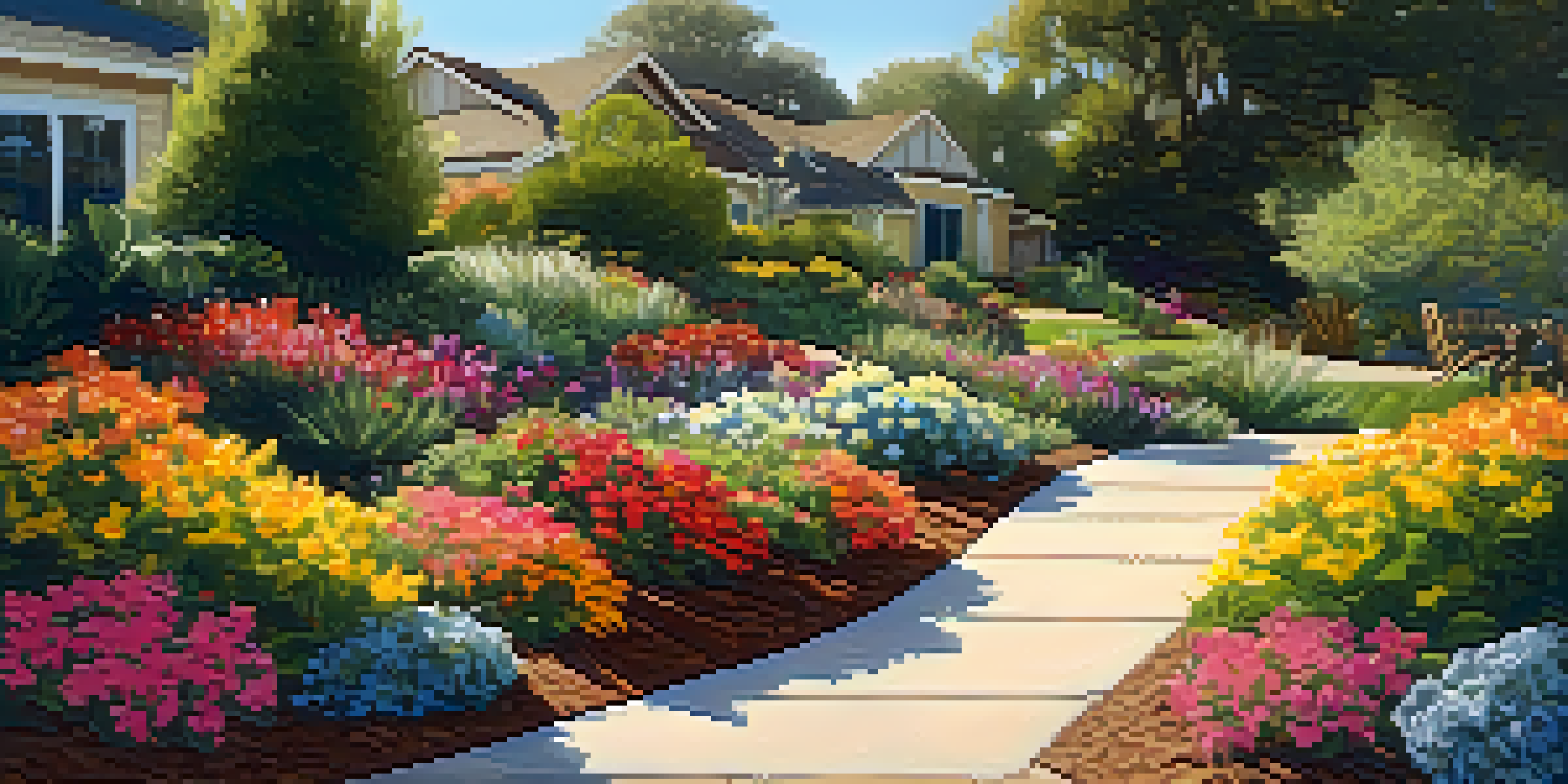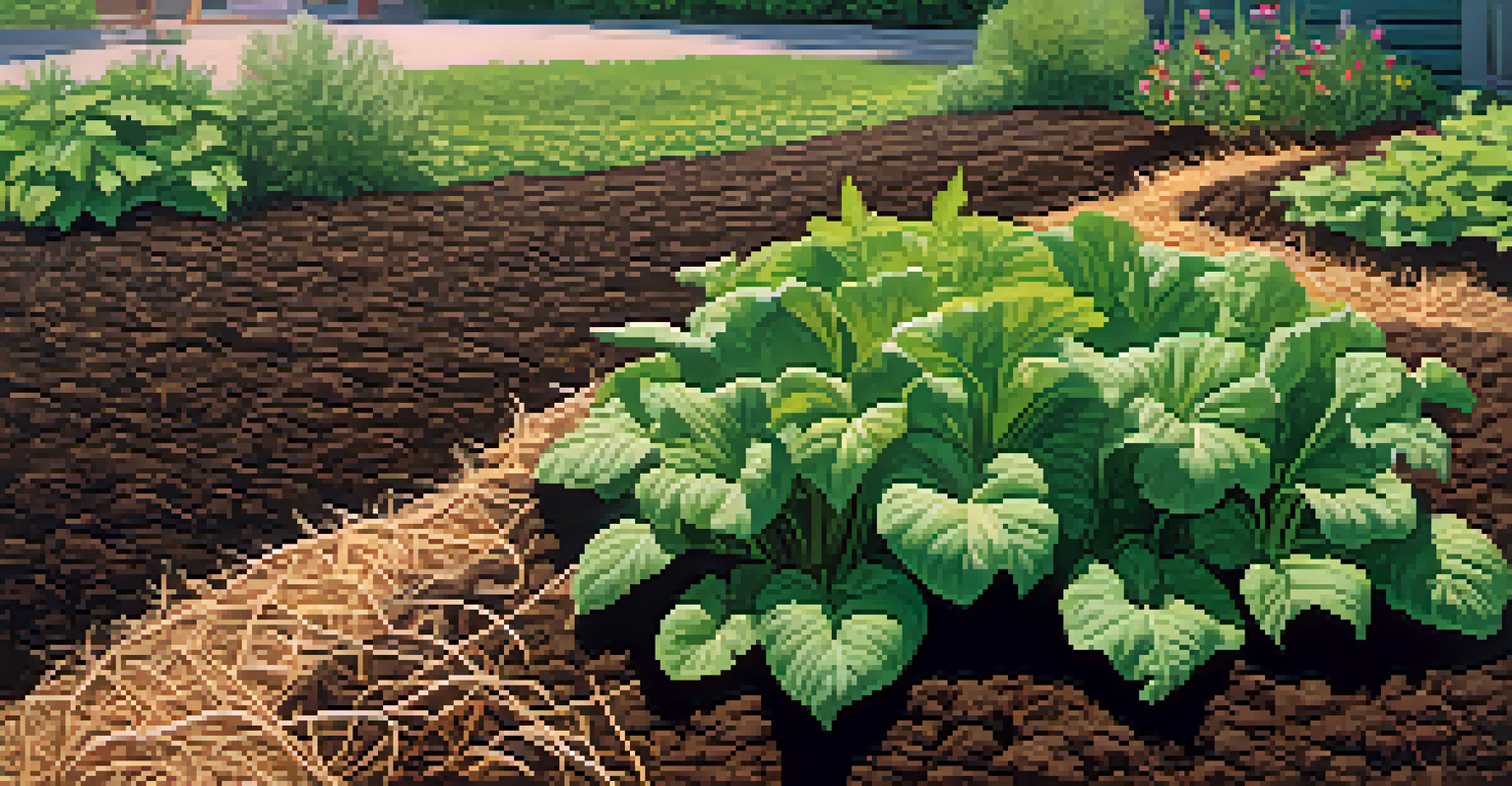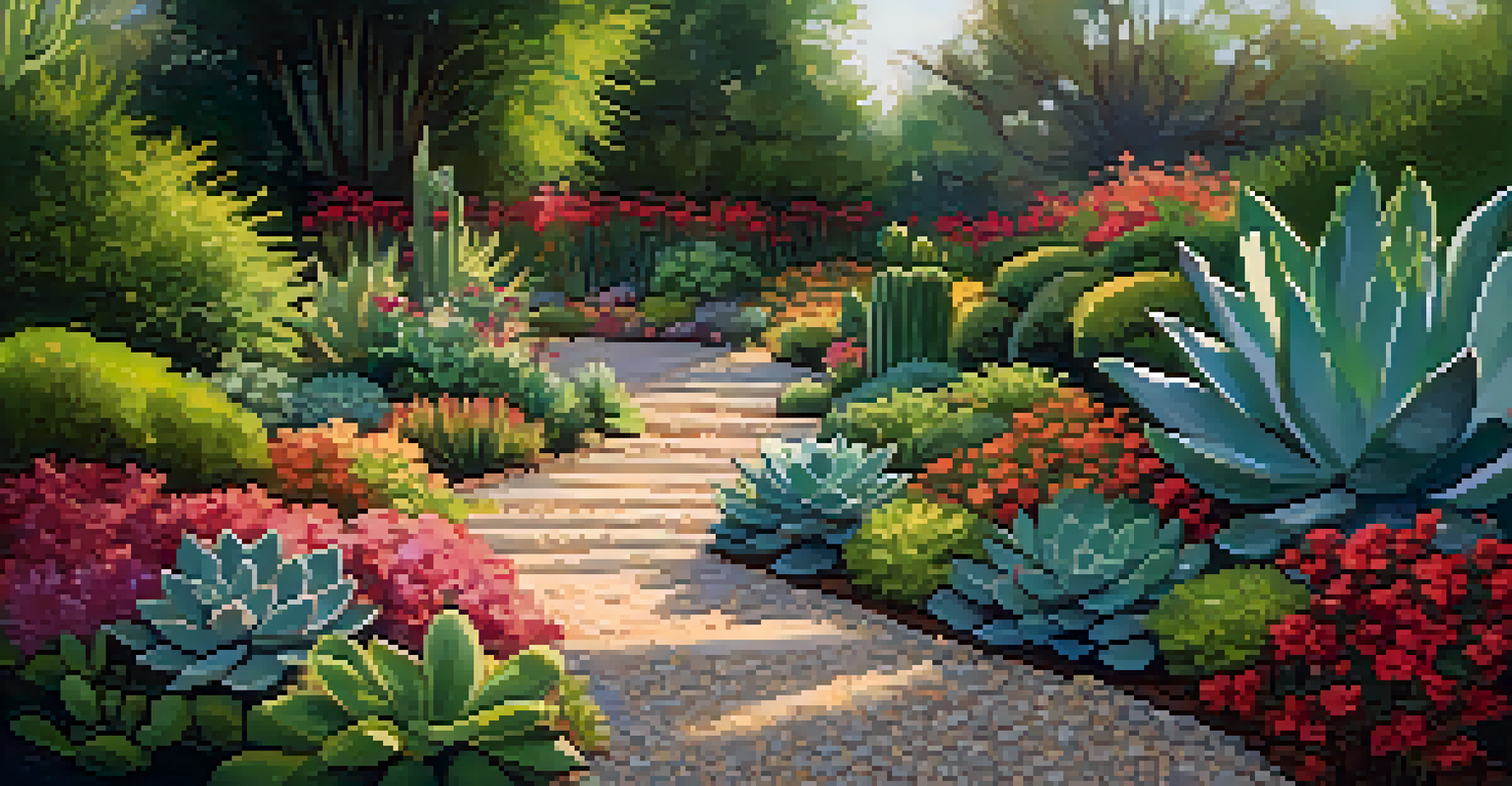The Role of Mulching in Carlsbad Gardening Success

Understanding Mulching and Its Benefits
Mulching is the practice of covering the soil with a protective layer of material. This can include organic options like wood chips, straw, or grass clippings, as well as inorganic materials like rubber or plastic. The primary purpose is to improve soil health and moisture retention.
Mulching is the magic that nourishes the soil while nurturing your garden.
One of the standout benefits of mulching is weed suppression. By blocking sunlight, mulch prevents weeds from germinating and competing with your plants for nutrients. This means less time spent weeding and more time enjoying your garden.
Additionally, mulching helps regulate soil temperature, keeping it cooler in the summer and warmer in the winter. This creates a more stable environment for plant roots, leading to healthier and more resilient plants.
Mulch Types Suited for Carlsbad's Climate
Carlsbad's Mediterranean climate means you need mulch that can withstand both dry summers and occasional winter rains. Organic mulches like bark or straw are excellent choices, as they break down over time and enrich the soil. Alternatively, gravel or stones can serve as effective inorganic mulch options.

Each type of mulch has its unique advantages. For instance, wood chips not only suppress weeds but also provide a natural aesthetic that blends beautifully with gardens. On the other hand, gravel is low-maintenance and perfect for pathways or around succulents.
Mulching Boosts Soil Health
Mulching enhances soil structure and moisture retention, creating a thriving ecosystem that supports healthier plants.
Consider your garden's specific needs when selecting mulch. For example, if you're growing vegetables, you might prefer organic options that improve soil fertility. For decorative areas, a more visually appealing inorganic mulch could be the way to go.
How Mulching Enhances Soil Health
Mulching plays a vital role in maintaining soil health by providing organic matter as it decomposes. This organic matter improves soil structure, enhances drainage, and increases its ability to retain moisture. Healthy soil means healthier plants, which is the ultimate goal for any gardener.
The soil is the great connector of our lives, the source and destination of all.
Moreover, the decomposition of organic mulches introduces beneficial microorganisms and earthworms to the soil. These organisms are essential for nutrient cycling, helping to break down organic matter and make nutrients more available to plants.
As mulching continues to enrich the soil, it creates a thriving ecosystem beneath the surface. This balance supports plant growth and can lead to more fruitful harvests, especially for gardeners in Carlsbad looking to maximize their yields.
The Role of Mulching in Water Conservation
In Carlsbad, where water conservation is essential, mulching serves as a fantastic tool to reduce water usage. By covering the soil, mulch minimizes evaporation, allowing moisture to stay in the ground longer. This is especially crucial during the hot summer months when plants are most vulnerable.
Using mulch can significantly cut down on the frequency of watering your garden. For instance, a thick layer of organic mulch can retain moisture levels, meaning you can go longer between watering sessions. This not only saves water but also helps lower your utility bills.
Effective Water Conservation
By minimizing evaporation and erosion, mulching significantly reduces water usage, especially crucial in dry climates like Carlsbad.
In addition to conserving water, mulching helps prevent soil erosion during heavy rains. By holding the soil in place, mulch protects your garden from washouts and keeps nutrients where they belong - in the ground.
Best Practices for Applying Mulch
Applying mulch correctly is key to reaping its benefits. Start by clearing the area of weeds and debris before laying down your chosen mulch material. Aim for a depth of 2 to 4 inches, as too much mulch can suffocate plants and lead to issues like root rot.
It's also important to keep mulch away from the base of plants. Creating a small barrier around plant stems allows for proper airflow and prevents moisture accumulation that can attract pests. This simple step can help maintain healthy plants and reduce disease incidence.
Finally, remember to replenish your mulch regularly. Organic materials will break down over time, meaning you’ll need to add fresh mulch annually or as needed to maintain optimal coverage. This ensures your garden continues to enjoy the protective benefits throughout the seasons.
Common Mistakes to Avoid When Mulching
One common mistake gardeners make is using too much mulch. A thick layer might seem beneficial, but it can lead to moisture-related problems, such as root rot or fungal diseases. Remember, moderation is key when it comes to mulch application.
Another error is choosing the wrong type of mulch for specific plants. For instance, using a heavy mulch around delicate seedlings can inhibit their growth. Always consider the needs of your plants and the local climate when selecting mulch.
Choosing the Right Mulch Matters
Selecting appropriate mulch types based on plant needs and local conditions is essential for maximizing its benefits.
Lastly, neglecting to refresh your mulch regularly can diminish its effectiveness. As organic mulches decompose, they lose their ability to suppress weeds and retain moisture. Make it a point to check your mulch annually and replenish it as needed for optimal garden health.
Mulching: A Sustainable Gardening Practice
Incorporating mulching into your gardening routine is not only beneficial for your plants but also for the environment. By using organic materials, you contribute to a sustainable cycle of growth and decay. This practice reduces waste while improving soil health.
Sustainable gardening practices like mulching also promote biodiversity. Healthy soil supports a variety of organisms, from beneficial insects to earthworms, creating a balanced ecosystem. This diversity can enhance garden resilience, leading to better pest control and plant health.

Ultimately, mulching aligns perfectly with the principles of sustainability. By conserving water, reducing the need for chemical fertilizers, and supporting healthy soil, mulching is an essential practice for any gardener looking to make a positive impact on their environment.